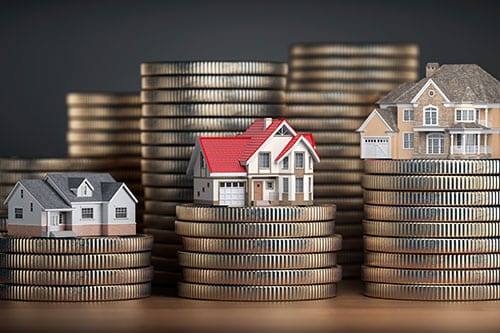How Does a Real Estate 1031 Exchange Work?
Real estate investors, and many business owners also invest in real estate, have a powerful tax advantage in IRS Section 1031i There are some great tax breaks in real estate investment anyway, but the 1031 Like-Kind Exchange as it is called, is how an investor can build a huge nest egg over time while deferring capital gains taxes on exchanges of property.
Qualification for the 1031 Exchange is open to most owners of investment and business properties. Individuals, partnerships, C Corporations, S Corporations, LLCs, trusts, and other taxpaying entities may set up exchanges and defer taxes.
How the 1031 Like-Kind Exchange Works
The way investors build large portfolios with excellent cash flow is to roll over properties as markets change and as their financial abilities allow. Many begin with lower cost rental homes, and later they sell those and roll the money into more expensive properties. Others move some residential rental income investments into multi-family apartments or commercial real estate.
The rules are strict, and you will need to work with a qualified business entity that handles the transaction, with no funds passing to you from the sale of one property for the purchase of another. Should you take cash out or not roll all of the proceeds according to the rules into the new property, you will be taxed on that money.
The value to the investor is that the capital gains taxes, if a properly executed 1031 Exchange, will be deferred indefinitely. If you sell a property you have held for a while and have nice equity and profits involved, and you properly roll the proceeds into a larger investment, you will owe no capital gains on that transaction. Only when you finally dispose of property will the capital gains taxes be due.
One other major advantage to a great many rental property investors is that they can avoid the capital gains taxes forever. Investors gradually build a large rental portfolio over time that generates a nice cash flow to fund their retirement. When they die, a properly handled passing of their portfolio to heirs will happen at the “stepped up” value of the property. This is the value on the date of death. The heirs inherit without any capital gains liability for the growth in value over time. In a way, “you can take it with you.”
The IRS Issues Final Regulations Regarding Like-Kind Exchanges
In IR-2020-262, the IRS sets out important changes in final regulations regarding like-kind exchangesii. First, the final regulations state that the changes cited in the Tax Cuts and Jobs Act regarding what types of property qualify will remain in effect. This means that only real property qualifies, so personal or other property like automobiles, artwork, etc. will remain ineligible.
Second, the final regulations clarify and expand the definition of “real property.” According to the IRS: “Under the final regulations, real property includes land and generally anything permanently built on or attached to land. In general, real property also includes property that is characterized as real property under applicable State or local law. In addition, certain intangible property, such as leaseholds or easements, qualifies as real property under section 1031.”
Everything considered, the Like-Kind 1031 Exchange is still a huge tax benefit for real estate investors.
i Like-Kind Exchanges Under IRC Section 1031, IRS Fact Sheet
ii IR-2020-262, November 23, 2020, IRS.gov

